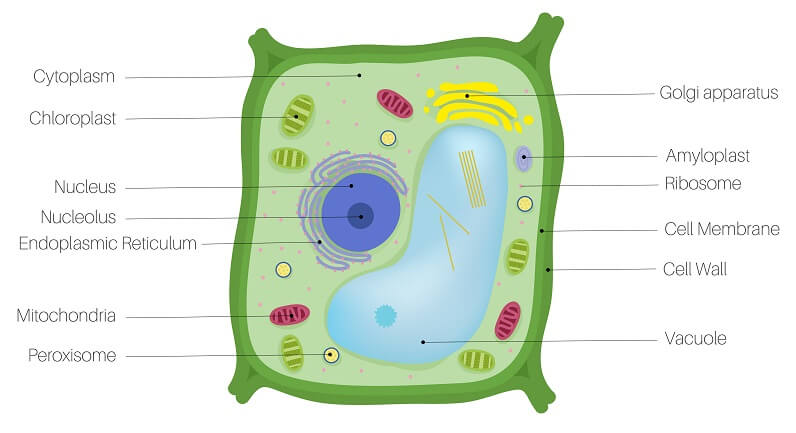News
Stores water and other essentials in plant cells

Vacuoles play a pivotal role in plant cell functionality, particularly in their capacity to store water, wastes, and other materials. This comprehensive exploration delves deep into the functionality of vacuoles, with a special focus on their critical role in water storage. By understanding how vacuoles store water, we gain insights into the survival strategies of plants, especially how they manage essential resources and respond to environmental pressures.
Introduction to vacuoles in plant cells
Vacuoles are key components of plant cells, often taking up most of the cell’s interior space. These membrane-bound sacs are vital for a variety of cellular functions, with their primary role being to store water, which is crucial for maintaining cellular structure and pressure.
Structure and composition of vacuoles
Encased by a selectively permeable membrane known as the tonoplast, vacuoles contain cell sap—a watery mixture of salts, minerals, and enzymes. The tonoplast’s selective permeability is crucial for regulating what enters and exits the vacuole, ensuring that the cell can maintain a balance of necessary substances such as ions, nutrients, and proteins.
Vacuoles and their role in storing water
Storing water is a fundamental function of vacuoles in plant cells. This storage is essential not only for the plant’s day-to-day survival but also for its overall health and development.
Water storage and plant turgidity
Vacuoles help maintain turgidity, which is the pressure of the cell contents against the cell wall. Turgid cells are essential for keeping the plant’s structure rigid and upright, enabling growth against gravity. Properly hydrated vacuoles ensure that plants appear robust and vibrant, while insufficient water storage can lead to wilting.
Response to environmental stress
In environments where water is scarce, such as arid regions, vacuoles’ ability to regulate water storage becomes critical. During drought conditions, vacuoles adjust their water content to help plants conserve moisture and survive until conditions improve.
Additional vital functions of vacuoles
While the ability to store water is a key function, vacuoles also fulfill several other crucial roles within the plant cell:
Waste storage and detoxification
Vacuoles act as containment centers for metabolic wastes, isolating these potentially harmful materials from the rest of the cell. Some vacuoles also contain enzymes capable of detoxifying toxins, which further safeguards the plant’s internal environment.
Nutrient storage
During times of abundance, vacuoles store vital nutrients that the plant may need during rapid growth phases or when external nutrients become scarce. This storage capability ensures that plants have access to necessary resources at critical times.
Pigment storage
Vacuoles often store pigments that influence the coloration of flowers and fruits. These pigments play a significant role in attracting pollinators and aiding in seed dispersal, thereby enhancing the plant’s reproductive success.
The role of vacuoles in plant adaptation
Beyond their basic storage functions, vacuoles significantly contribute to plant adaptation across various environments. By effectively managing internal resources such as water and nutrients, vacuoles enable plants to thrive in diverse and often challenging habitats.
Regulation of internal pH
Vacuoles help regulate the pH within plant cells, a critical function for metabolic processes. They manage hydrogen ion concentrations, balancing cellular acidity to optimize conditions for enzymatic reactions.
Osmotic balance
Vacuoles are instrumental in maintaining osmotic balance within plant cells. By controlling the concentration of solutes in the cell sap, they help manage the osmotic pressure, which is crucial for the absorption and retention of water from the soil.
Conclusion
Vacuoles are multifunctional organelles that demonstrate the complexity of plant cells. By studying how vacuoles store water and perform other essential functions, we can better understand plant biology and its ecological interactions.
This knowledge not only deepens our appreciation for plant life but also informs better agricultural and gardening practices. Vacuoles embody the intricate balance of cellular functions that support and sustain life, making them a fascinating subject of study in plant science.
